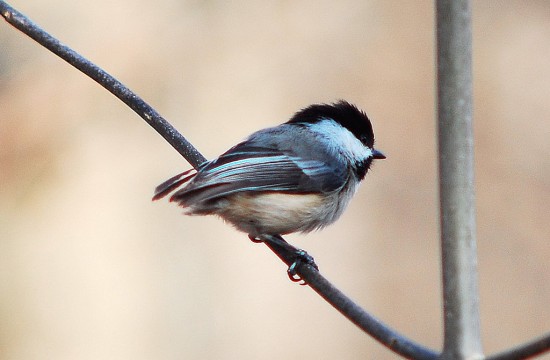Andrea K. Paterson speaks about the noisy environment that we live in and discusses the tragic loss of natural silence.
Every morning I walk four short blocks to the bus stop and each morning I endure the aural assault of a highly mechanized world. When I emerge from my apartment building the background drone of industrial noise goes from an innocuous buzz to a full-fledged cacophony: relentless traffic, trucks idling outside the fruit and vegetable market, construction crews putting in a new sidewalk or breaking up an old one with jack-hammers and cursing. There is a strange humming sound that permeates the entire neighbourhood. It sounds like an electrical generator and it goes through my body like a shock. A car alarm goes off somewhere, a horn blares, an ambulance wails past. I fight the urge to cover my ears and retreat to a hole, deep in the ground, where the rumbling, ravenous roar of the planet can’t touch me.
I am beginning to forget what natural sounds feel like, and then I hear it — the distinct two note song of a black-capped chickadee. Somehow its voice rises above the din and I hear those shrill notes clearly. I latch onto that sound and let it sustain me as I trudge along the sidewalk. I breathe exhaust fumes and dust from a nearby construction site as the chickadee sings on — a remonstration thrown out against the concrete world, but it also feels like hope. Here in the urban jungle, a bird the size of a ping-pong ball speaks over the unceasing groan of industrial destruction. “I’m still here” it seems to say. “I’m still here.”
Suddenly the chittering of the crosswalk system for the blind displaces the birdsong. I feel a moment of grief, as if engines and machinery have swallowed the chickadee whole. I listen closely for its voice, but can’t pick it out anymore. Every day I feel something like pain as I desperately search for true silence — the kind that contains only natural sounds of the planet. There is no such thing in my daily world. I can always hear cars on the roads outside, I can always hear the low hum of the fluorescent lights overhead, the gurgle of the water cooler, the fans in my computer or the rhythmic swish of the photocopier. The mechanical dictatorship of the world imposes engineered noise as the norm. It rejects organic sounds — birds, wind, even my own breathing.
As human beings take over more and more of the planet we lament the animals that are lost. We worry about the endangered species — the tigers, the whales, the polar bears. We worry about endangered landscapes — the estuaries, the rain forests, the glaciers. We rarely think about endangered soundscapes but it’s true that silence is severely threatened. I read somewhere recently that hardly any places on the entire earth are free of mechanized sounds. The roar of industrialization reaches into the most secret recesses of the planet and silence exists on the brink of extinction. I hope that people will think about that when they decide to use a snow blower instead of a shovel, when they put those noise making mufflers on their cars, when they bring huge stereos to campsites.
We have forgotten how to appreciate silence. We plug ourselves in to our iPods, we put the television on in the background, we feel uncomfortable in conversation when a pause lasts too long. We can preserve silence just like eagles if people are aware of the threat to its existence. I urge everyone to take a minute this week to seek out the silence underneath the traffic and beeping and crashing. Listen for the flap of small wings, the whisper of the grass, the soft tread of your own feet on the earth.
Photo Credits
“Black capped chickadee j\f\photos @ Flickr.com. Creative Commons. Some Rights Reserved.



This is so true Andrea – the loss of silence is a real loss in our world, and not just in urban areas. It’s a challenge to find anywhere where natural sounds and silence are not in competition with sounds we humans have created. Nicely written.
Thanks for reading Lorne. And it’s so true–even the depths of the rainforests are contaminated with human created sounds. The most secluded tribes are still subjected to noise from ever increasing highways and air traffic.